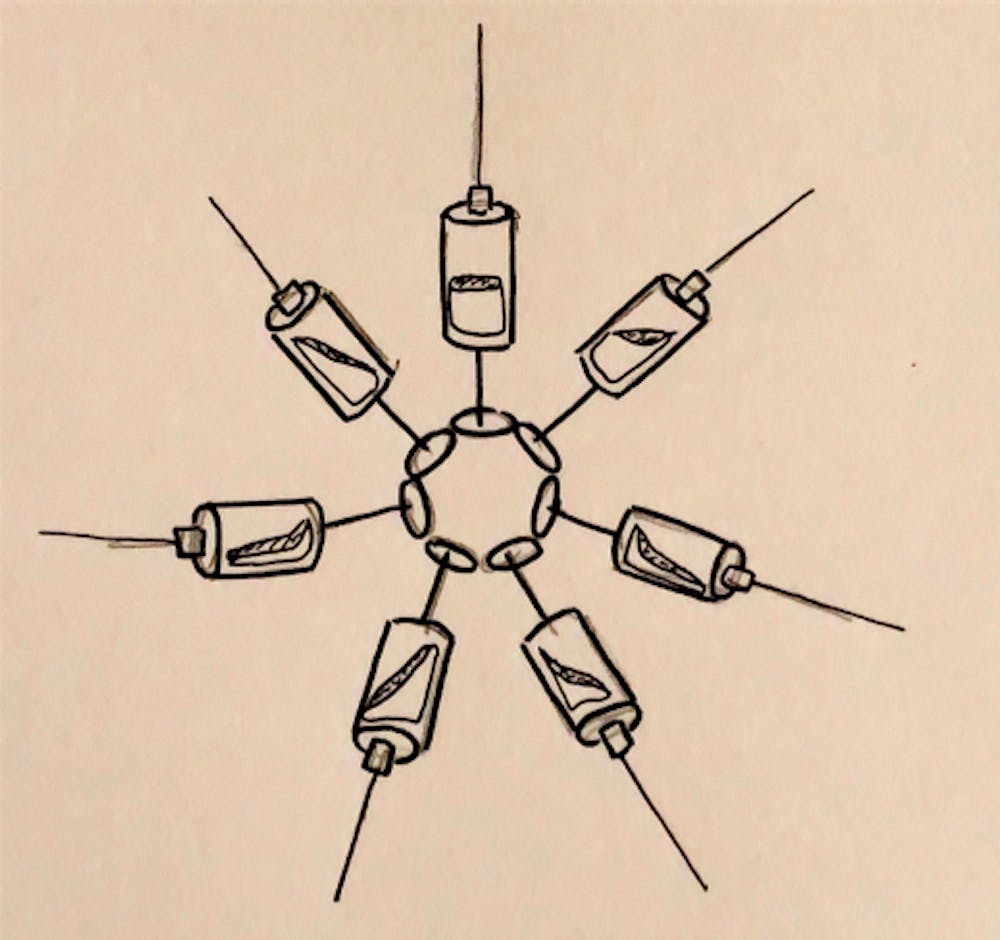High-risk Vermonters could receive a Covid-19 vaccination as soon as early December, State Commissioner of Health Mark Levine announced last week. Multiple pharmaceutical companies have applied for emergency approval from the FDA, accelerating the usual regulatory process.
Drug company Pfizer’s vaccine is scheduled to be reviewed by the FDA on Dec. 10, after which a potential rollout could be nearly instantaneous. Levine has said that Vermont could receive about 20,000 doses of an approved vaccine in the first wave.
The federal government plans to allocate the vaccine on a prorated basis, based on population size. Vermont, with just over 620,000 inhabitants, is the second-least-populated state.
Chris Finley, director of Vermont’s immunization program in the Department of Health, stressed the safety and integrity of the trial process despite the shorter timeline. Pfizer’s vaccine, reportedly 95% effective, was tested among 44,000 people.
“Although vaccine development has been fast, the steps to ensure safety have not been skipped,” Finley told The Campus. “I strongly encourage everyone to get the vaccine when available.”
High levels of vaccination would be necessary to reach herd or community immunity, which officials say is necessary to combat the virus.
Only a small number of Vermonters are expected to be vaccinated before the end of the year. “Due to limited amounts, initially the vaccine will only be made available to those at highest risk,” said Finley.
The CDC’s Advisory Committee on Immunization Practices recommended Tuesday that healthcare workers as well as nursing home employees and residents be the first vaccinated. By Friday, Dec. 4, states must inform the federal government of their prioritized populations in preparation for vaccine delivery.
State health officials are uncertain when most college students will be able to be vaccinated, although Finley estimates it won’t be until “the middle to the end” of Spring 2021.
“Social distancing efforts will be key to containing Covid-19 on college campuses in the next semester,” said Finley.
In the fall 2020 semester, Middlebury had five positive student cases of Covid-19. The University of Vermont had 102 positive student cases, including those living off campus.
As pandemic fatigue rises and cases surge across the country, many are hopeful for the prospect of a vaccine in the near future.
“I have an immunocompromised family member, so a Covid-19 vaccine would definitely put my family more at ease,” said Victoria Andrews ’23.
“I don’t think it would necessarily change any precautions we would take in the near future, but it would definitely take away some of the stress of contracting Covid,” she added.
Andrews acknowledged the longer timeline for college-aged individuals, explaining that she expects little change in the immediate future for peers. “Spread could [still] occur at colleges because large numbers of unvaccinated students could be living and interacting with each other.”
Experts like Chris Finley stress sustained precautions even with a vaccine on the horizon. “If you’re in a group where vaccines may not be available to you for three to four months, stay the course with social distancing and masking.”
Andrews remains optimistic. “In the distant future, I hope the vaccine will allow many of the current guidelines to be relaxed and for the return of some sense of normalcy,” she said.
Jack Summersby is a local editor.




